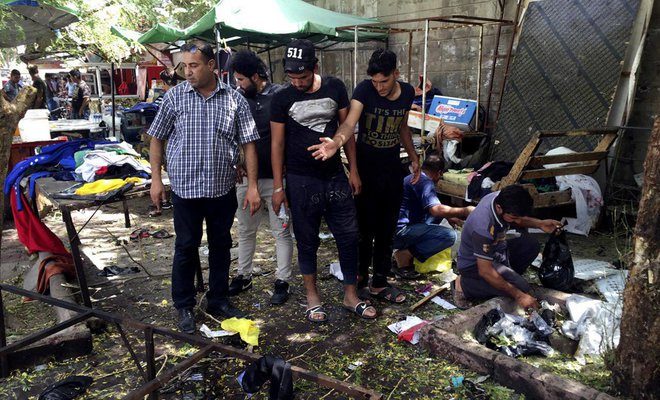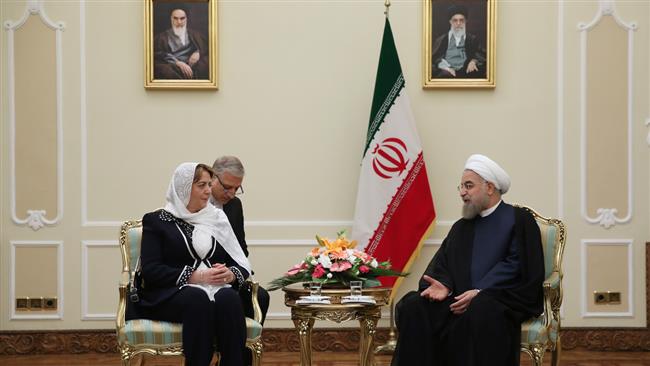
The 10 Brazilian supporters of the terror group ISIS, who were arrested on Thursday across Brazil, didn’t seem to be prepared to launch attacks in the country.
According to intercepted WhatsApp and Telegram messages sent to each other, the members were planning to take martial arts and shooting classes. One of them inquired online about buying an AK-47 rifle from a shop in Paraguay.
All those arrested appear to be Muslim converts, ranging in age from 20 to 50 years. A few of them knew each other personally, but most of them knew each other only through the Internet. A few of them ran their own blogs online where they praised ISIS and the various terrorist attacks the group claimed responsibility for such as the Orlando and Nice massacres. One of them, Ahmed Andrade Santos Junior, 34, from Joao Pessoa in the state of Paraiba, learned about Islam online and radicalized himself by regularly visiting extremist forums online.
O Estado de Sao Paulo newspaper characterized him as a former Christian who was not at all religious and who used to box. His expounding of extremists ideas got him banned from a local mussala by the imam. He visited Egypt and was photographed there posing next to the flag of Daesh. When he returned to Brazil he openly defended Daesh and its dastardly acts.
Another suspect that was arrested was Vitor Barbosa Magalhaes, 23, of Guarulhos in greater Sao Paulo. He taught himself Arabic online and then got a scholarship to learn Arabic in Cairo for six months in 2009. It is there that he learned more about Islam and converted. His wife said in an interview that she believes him to be innocent and that he is non-violent.
Brazilian authorities are on full security alert ahead of the Rio Olympic Games, which open on Aug. 5. Already 6,000 National Force military troops have been deployed in Rio de Janeiro to ensure the safety of the expected 500,000 athletes and visitors. But many Brazilian commentators have noted that visitors to Rio have more to fear from being robbed or killed by local criminals, rather than be caught in a terror attack.
Brazilian Justice Minister Alexandre de Moraes gave several interviews to the press on Thursday stressing the amateurism of the 10 suspects that were arrested, noting that two more suspects were still at large.
He added that the deportation last week of the Franco-Algerian physicist Adlene Hicheur, who had been teaching at a university in Rio, but had been previously been sentenced to three years in prison in France in 2009 for allegedly planning terror attacks in France with Al-Qaeda operatives, was part of Brazil’s actions against possible terror threats before the Rio Olympics. The Brazilian Defense Minister Raul Jungmann also downplayed the threat of the arrested suspects, saying that they were “bat-crazy.”
President Michel Temer was reportedly unhappy with the comments of his two ministers. It is clear that Brazil, which has never endured terror attacks before, is being pressured by the United States and France to beef up its security for the Olympics, and to show it is doing something by rounding up Muslim suspects that support ISIS.
“Brazil is being pressured greatly by countries that are really targets and are demanding security guarantees. Brazil does not have expertise, but it’s making an effort. It has done an important monitoring of online chatter on social media,” said Paulo Velasco, a professor and researcher at the Getulio Vargas Foundation in an interview with Estado de Sao Paulo.
But some in the Muslim community here feel that the government is overreacting to please foreign governments and adding fuel to the fire of Islamophobia in Brazil, a largely Catholic nation. “The Muslim community supports the actions of the federal police as long as they are done with transparency and proof,” said Jihad Hammadeh, the president of the National Union of Islamic Entities in Sao Paulo.
“There is a growing Islamophobia, principally on the part of entities that should bring security to society,” warned Hammadeh, who is also an imam. “The National Union of Islamic Entities manifests its profound preoccupation with the recent events and reports that Brazilian citizens are associated with terrorism in Brazil. At the same time, we vehemently support the actions of the federal police for the investigation of these facts, but with concrete evidence and much transparency so that no injustice and persecution occurs against any citizen or group,” he stressed in a statement.
Hammadeh warned that the sensational fashion in which the arrests of the 10 suspects was being reported by some media outlets in Brazil is bringing terror to the population at large and discrimination to Muslims. Unfortunately this is true. Even the big media here treats the whole issue in a sensational way.
The 10 suspects are being held initially for a 30-day period. If authorities are unable to prove any of the more serious terror charges against them, they will be released and could be made to wear electronic bracelets to monitor their movements and banned from approaching certain public sites such as sensitive government buildings, military installations and stadiums.
I understand the worry of the Brazilian government to nip any potential terror threat in the bud before any attacks take place. Despite the comments of the two ministers stressing how amateurish the 10 suspects had been, one can never be too safe, as we have seen from the Orlando and Nice attacks that were undertaken by lone wolves that had slid below the radar. ISIS
The problem is that the Brazilian population at large still does not know enough about the real Islam, and therefore ends up believing that all Muslims are bloodthirsty terrorists. This is some of the real damage that ISIS is doing to the image and reputation of Muslims worldwide — damage that will take a long time to repair.
RASHEED ABOU-ALSAMH – Arab news
The writer is a Saudi journalist based in Brazil.



